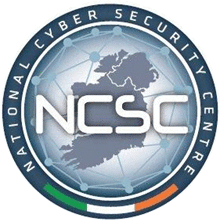The United States Computer Emergency Readiness Team (US-CERT) is an organization within the Department of Homeland Security’s (DHS) Cybersecurity and Infrastructure Security Agency (CISA). Specifically, US-CERT is a branch of the Office of Cybersecurity and Communications' (CS&C) National Cybersecurity and Communications Integration Center (NCCIC).

The National Cyber Security Division (NCSD) is a division of the Office of Cyber Security & Communications, within the United States Department of Homeland Security's Cybersecurity and Infrastructure Security Agency. Formed from the Critical Infrastructure Assurance Office, the National Infrastructure Protection Center, the Federal Computer Incident Response Center, and the National Communications System, NCSD opened on June 6, 2003. The NCSD mission is to collaborate with the private sector, government, military, and intelligence stakeholders to conduct risk assessments and mitigate vulnerabilities and threats to information technology assets and activities affecting the operation of the civilian government and private sector critical cyber infrastructures. NCSD also provides cyber threat and vulnerability analysis, early warning, and incident response assistance for public and private sector constituents. NCSD carries out the majority of DHS’ responsibilities under the Comprehensive National Cybersecurity Initiative. The FY 2011 budget request for NCSD is $378.744 million and includes 342 federal positions. The current director of the NCSD is John Streufert, former chief information security officer (CISO) for the United States Department of State, who assumed the position in January 2012.
The Korea Internet & Security Agency is the Ministry of Science and ICT's sub-organization dealing with the allocation and maintenance of South Korea's IPv4/IPv6 address space, Autonomous System Numbers, and the .kr country code top-level domain (ccTLD), and also responsible for the cybersecurity of the Internet within South Korea, and runs the Korea Computer Emergency Response Team Coordination Center, a.k.a. KrCERT/CC, for the private sector of the country. Other roles include but are not limited to, the promotion of safe Internet usage and Internet culture, detecting and analyzing malware/viruses on the web, privacy protection, operating root CA, education on Internet and cybersecurity, and various other cybersecurity issues.
A computer emergency response team (CERT) is an expert group that handles computer security incidents. Alternative names for such groups include cyber emergency response team, computer emergency readiness team, and computer security incident response team (CSIRT). A more modern representation of the CSIRT acronym is Cyber Security Incident Response Team.
The Qatar Computer Emergency Response Team was created in December 2006 by CERT/CC and ictQATAR. It is Qatar's coordination center in dealing with internet security problems.

Internet police is a generic term for police and government agencies, departments and other organizations in charge of policing the Internet in a number of countries. The major purposes of Internet police, depending on the state, are fighting cybercrime, as well as censorship and propaganda.
In the fields of computer security and information technology, computer security incident management involves the monitoring and detection of security events on a computer or computer network, and the execution of proper responses to those events. Computer security incident management is a specialized form of incident management, the primary purpose of which is the development of a well understood and predictable response to damaging events and computer intrusions.
The Indian Computer Emergency Response Team is an office within the Ministry of Electronics and Information Technology of the Government of India. It is the nodal agency to deal with cyber security incidents. It strengthens security-related defence of the Indian Internet domain.

The National Cyber Security Centre (NCSC) is a government computer security organisation in Ireland, an operational arm of the Department of the Environment, Climate and Communications. The NCSC was developed in 2013 and formally established by the Irish government in July 2015. It is responsible for Ireland's cyber security, with a primary focus on securing government networks, protecting critical national infrastructure, and assisting businesses and citizens in protecting their own systems. The NCSC incorporates the Computer Security Incident Response Team (CSIRT-IE).
Cyber threat intelligence (CTI) is knowledge, skills and experience-based information concerning the occurrence and assessment of both cyber and physical threats and threat actors that is intended to help mitigate potential attacks and harmful events occurring in cyberspace. Cyber threat intelligence sources include open source intelligence, social media intelligence, human Intelligence, technical intelligence, device log files, forensically acquired data or intelligence from the internet traffic and data derived for the deep and dark web.

The Cyber Security Agency (CSA) is a government agency under the Prime Minister's Office, but is managed by the Ministry of Communications and Information of the Government of Singapore. It provides centralised oversight of national cyber security functions and works with sector leads to protect Singapore's Critical Information Infrastructure (CII), such as the energy and banking sectors. Formed on 1 April 2015, the agency also engages with various industries and stakeholders to heighten cyber security awareness as well as to ensure the development of Singapore's cyber security. It is headed by the Commissioner of Cybersecurity, David Koh.
Information Technology in Sri Lanka refers to business process outsourcing, knowledge process outsourcing, software development, IT Services, and IT education in Sri Lanka. Sri Lanka is always ranked among the top 50 outsourcing destinations by AT Kearney, and Colombo and ranked among "Top 20 Emerging Cities" by Global Services Magazine. The export revenue of this industry grew from USD 213 million in 2007 to USD 1.2 billion in 2021.
National Critical Information Infrastructure Protection Centre (NCIIPC) is an organisation of the Government of India created under Section 70A of the Information Technology Act, 2000 (amended 2008), through a gazette notification on 16 January 2014. Based in New Delhi, India, it is designated as the National Nodal Agency in terms of Critical Information Infrastructure Protection. It is a unit of the National Technical Research Organisation (NTRO) and therefore comes under the Prime Minister's Office (PMO).
The National Cybersecurity and Communications Integration Center (NCCIC) is part of the Cybersecurity Division of the Cybersecurity and Infrastructure Security Agency, an agency of the U.S. Department of Homeland Security. It acts to coordinate various aspects of the U.S. federal government's cybersecurity and cyberattack mitigation efforts through cooperation with civilian agencies, infrastructure operators, state and local governments, and international partners.
The 2019 cyberattacks on Sri Lanka were a series of powerful cyberattacks on at least 10 Sri Lankan domestic websites with the public domains of .lk and .com. The cyberattack is speculated to have been conducted on 18 and 19 May 2019, the day following the Vesak festival and amid the persistent temporary social media ban in the country. The website of the Kuwaiti Embassy operating in Sri Lanka was also affected by the cyberattacks. The investigations are currently carried out by Sri Lanka Computer Emergency Readiness Team along with Sri Lanka Signals Corps.
The 2020 cyberattacks on Sri Lanka were a series of cyberattacks on at least 5 Sri Lankan national websites with the top-level domains of .gov and .com. The cyberattack is speculated to have been conducted on 17 and 18 May 2020. The cyber-attack was also launched on the leading news website of Sri Lanka. The website of the Chinese Embassy operating in Sri Lanka and the website of Cabinet Office in Sri Lanka were also affected by the cyberattack. The investigations are currently carried out by Sri Lanka Computer Emergency Readiness Team along with the Information Technology Society of Sri Lanka (ITSSL). ITSSL believes that this cyber attack conducted by a group called 'Tamil Eelam Cyber Force'.

The 2021 cyberattacks on Sri Lanka were a series of cyberattacks on at least 10 Sri Lankan national websites including Google.lk domain.

The OIC Computer Emergency Response Team, commonly known as OIC-CERT, is a computer emergency response team and one of the 17 affiliated organs of the Organisation of Islamic Cooperation. Focused on global cybersecurity in the 27 member and non-member states, it is considered the world's third-largest computer emergency response team coordinated by the 27 countries. The OIC-CERT is primarily focused on providing emergency support in cyber resilience with global collaboration with its associated members and information security organizations. It also encourages member states to implement cybersecurity policies by their respective CERTs.
Azerbaijan Computer Emergency Response Team, officially known as Azerbaijan Government CERT, is a computer emergency response team of the Republic of Azerbaijan responsible for cybersecurity and gathering data concerning information technology. It operates under the Special Communication and Information Security State Service of the government of Azerbaijan. It collects data within its framework from relevant sources, including internet users, computer engineering groups, individuals or organizations and software developers. It coordinates with the foreign countries for gathering and analysing data from cybersecurity incidents involving both software and hardware tools designed for the prevention of internet and computer security.

The Bangladesh e-Government Computer Incident Response Team is the state-run agency of the government of Bangladesh responsible for maintaining cybersecurity in the country. Works under the Ministry of Posts, Telecommunications and Information Technology, it is the national computer emergency response team (CERT) with prim focus on receiving and reviewing, and responding to cybersecurity incidents in the country.






